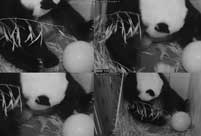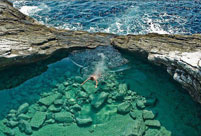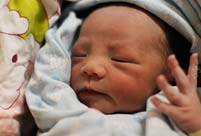 Su Rong meets chairman of Vietnam-China Friendship Association in Beijing
Su Rong meets chairman of Vietnam-China Friendship Association in Beijing
 Lady of mystery: Female SWAT team in prison disclosed
Lady of mystery: Female SWAT team in prison disclosed
 Chinese compete at tango semifinals in Argentina
Chinese compete at tango semifinals in Argentina
 Final of World's Strongest Man competition
Final of World's Strongest Man competition
 Boy pushed to air, 2 meters high by fountain in Huibei
Boy pushed to air, 2 meters high by fountain in Huibei
 Vintage cars exhibited at auto cultural festival in China's Shanxi
Vintage cars exhibited at auto cultural festival in China's Shanxi
 Military plane crashes in NE China
Military plane crashes in NE China
 Baby born to save his sister - the story of a savior sibling
Baby born to save his sister - the story of a savior sibling
 Those embarrassing copycat buildings
Those embarrassing copycat buildings
For elite Chinese travelers, tourism isn’t about seeing well-trodden sites, visiting museums and shopping, but about special and unique experiences. Zhang Qian reports.
Instead of visiting the Statue of Liberty and Times Square, like what many ordinary tourists do in the United States, 20 elite Chinese travelers will have VIP access to top designers’ shows in New York Fashion Week, as well as reality TV’s “Project Runway” finals.
Those stops are a few highlights of a platinum customized New York City tour that begins after touchdown by private jet in early September.
No buses, no crowding, no mass shopping. They will experience the finest attractions and dine at Michelin-star restaurants. They will rub shoulders with fashion industry elite at VIP parties.
Bilingual staff attend to every individualized need.
This is the latest seven-day travel event package, organized by Highlife Asia, an event management and luxury concierge company in Shanghai.
Many Chinese tourists still travel in rather large groups by bus, go on shopping sprees and do the sites. Rush, rush, rush. It’s the same for package tours around the world.
But those with money have probably already seen the tourist sites and want to do something interesting and special wherever they go. They are looking for a special experience, off the beaten track. It might also be spending time with expert biologists in a rain forest and staying in five-star jungle bungalows.
Customized travel is increasingly popular in China and it can be very specific and individualized.
“The change in customers’ need is natural, since more Chinese are becoming experienced in overseas travel,” says Guo Wenjing, deputy director of the European Travel Department of Shanghai China Youth Travel Service. It launched customized travel packages in 2009.
Most clients have already been on group tours and traveled individually, but now they want something more satisfying, she says.
“They don’t like group travels filled with must-visit scenery and they are tired of making their own itineraries. What they want is a travel experience planned by professionals according to their requests, which has lead to development of customized travel service,” says Guo.
In the Chinese market there are three basic types of customized travel service: reservation service, such as booking airline tickets and hotels; customized set packages, with built-in flexibility for change, and complete C2B (customer to business).
Though many local agencies are open to fully customized travel requests, customized set packages with flexibility are preferred by many people who are willing to pay more. These packages tend to be hassle-free and the details are well planned.
And then there is high-end customization.
Most of Highlife Asia’s packages are linked with prestigious and luxurious overseas events, such as the Grammy Awards, Cannes Film Festival and Wimbledon Championships. These cost from 100,000 yuan (US$16,330) to 250,000 yuan per person seven to 10 days and include front-row seats, five-star hotels, Michelin-star restaurants and private jet service. All 20 places in the New York Fashion Week tour are sold out.
After the good reception of its 1.01-million-yuan (US$164,920) 80-day World Tour package last year, HH Travel, a high-end travel brand of C-trip, offers a seven-day luxury Maldives tour package. It costs 195,000 yuan each, including private jet service and other exclusive service on the islands. It expects positive feedback.
“Though it started late, there is a huge potential market in China for luxurious customized tour service and it may increase at rocket speed in the near future,” says Jack You, CEO of HH Travel.
According to him, most of his Chinese customers are entrepreneurs and successful business people ranging in age from 40 to 45. In the West, retired people over 50 prefer this kind of tour, You says.
Highlife Asia says almost 80 percent of its business comes from high-net-worth Chinese in their 40s.
“Exclusive access is the main draw, according to customer feedback. It’s inspiring to hear clients describe their once-in-a-lifetime experiences and the celebrities they’ve met, parties attended and exclusive moments shared,” says Mark Byrne of Highlife Asia.
In contrast with overseas clients who might request one experience at a time, “most Chinese clients want it all at once,” Byrne says.
Some clients want to combine business and investment opportunities with a holiday, so an agency must ensure there’s plenty of time for business as well as pleasure.
You of HH Travel says clients also request such luxury packages to “reward” family whom they have neglected due to work.
Though there is an increasing demand for high-end travel experiences, customized travel is not all about luxury.
In fact, ordinary, middle-class travelers are choosing well-planned, traditional itineraries.
According to Guo with the Shanghai China Youth Travel Service, their best-selling product is a 10-day customized package in Spain and Portugal costing 25,000 yuan, affordable for most professionals.
The monthly package with 25 seats has always sold out since it was launched in 2009.
Those customers now account for one-third of the company’s European travel numbers.
“Most customers are willing to pay more for better service, but not more than they can afford,” says Guo. “A few changes like upgrading the accommodation in downtown areas, providing delicious local specialties, and giving them more free time instead of dragging them around will make their journey much happier. Not many customers will expect luxuries like private jets.”
In fact, only 10 percent of the clients have upgraded their airline tickets by paying extra.
A whole free day on the island of Mallorca, aided by a detailed brochure, was the highlight of the trip for 27-year-old Sarah Hou, who works at a State-owned company and just returned from the customized trip in Spain and Portugal.
“Spending more time on what I am interested in rather than being forced to stay at the regular, crowded scenic spots is the major reason that I chose a customized travel package,” says Hou.
 Panda cub born at U.S. National Zoo
Panda cub born at U.S. National Zoo Top 10 Chinese provinces for the well-heeled
Top 10 Chinese provinces for the well-heeled  Fan Bingbing poses for Malaysian magazine Citta Bella
Fan Bingbing poses for Malaysian magazine Citta Bella Fairytale destinations around world
Fairytale destinations around world Wild dream: Hell-like training for bodyguard
Wild dream: Hell-like training for bodyguard  Zhang Xinyi covers COSMOPOLITAN
Zhang Xinyi covers COSMOPOLITAN China’s weekly story
China’s weekly story  The story of a savior sibling
The story of a savior sibling A collection of bizarre rooftop buildings around China
A collection of bizarre rooftop buildings around China 100th birthday of 'Little Mermaid'
100th birthday of 'Little Mermaid' Escort taskforce holds live-fire training
Escort taskforce holds live-fire training Memorial held for China flood victims
Memorial held for China flood victims The world's biggest pure gold mascot
The world's biggest pure gold mascot 2013 Taiwan Int'l Tourism Expo kicks off in Taipei
2013 Taiwan Int'l Tourism Expo kicks off in Taipei Photo story: Take a gap year
Photo story: Take a gap yearDay|Week|Month